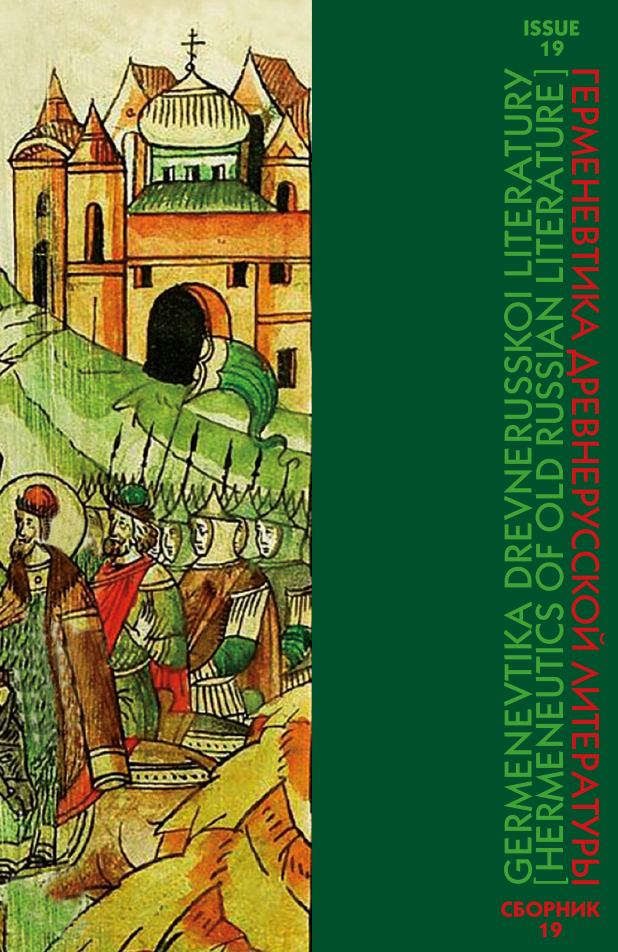Abstract
The article examines Swedish and Russian works created in the first quarter of the 17th century, including mention of Russian-Swedish armed conflicts of the 16th — the early 17th centuries and containing biblical “military” associations that are relevant, in the author’s opinion. In Russian texts the vanquished or defeated Swedes are identified with the variety of enemies of Israel — the Egyptians, Amalekites and Assyrians. In Swedish writings of the early 20s. of the 17th century by Latin poet and preacher Sylvester Phrygius (1572–1628) and court preacher of King Gustav II Adolf Johan Botvidi (1575– 1635) compare Russians with Ammonites. Phrygius’s book Agon regius talks about the similarity of King Johan III with David, who took revenge on the king of the Ammonites Hanun for insulting the ambassadors, and in Botvidi’s sermon dedicated to the centenary of the Reformation in Sweden, the similarity of King Gustav I with Jehoshaphat, who, with God’s help, defeated the combined forces enemies, including Ammonites. In the funeral sermon of chaplain and chronicler Gustav Vasa Peder Swart (d. 1562), from which Botvidi borrowed the “Russian” fragment, the military successes of King Gustav are not associated with victory of Jehoshaphat over Ammonites. In the book of the same Botvidi Several prayers used during the war in this difficult and invariably sad time (1629), Catholics are named as the enemies of Sweden, Russians are not mentioned and, which is significant, Ammonites are not among the listed enemies of Israel. A cautious assumption is made that Russian-Swedish wars of the 16th century Swedish authors of the first quarter of the 17th century perceived as the war between Israel and the “sons of Ammon.”
REFERENCES
1 Liustrov, M.Iu. Voina i kul’tura. Russko-shvedskie literaturnye paralleli epokhi Severnoi voiny [War and Culture. Russian-Swedish Literary Parallels of the Northern War Era]. Moscow, Russian State University for the Humanities Publ., 2012. 330 p. (In Russian).
2 Ekedahl, Nils. Det svenska Israel. Myt och retorik i Haquin Spegels predikokonst. Hedemora, Gidlunds Förlag, 1999. 270 s. (In Swedish)
3 Ljunggren, Gustaf. Svenska dramat intill slutet af sjuttonde århundradet. Hos förläggaren C.W.K. Gleerup. Hos Christian Falkenberg. Lund och Köpenhamn. Lund, Berlingska boktryckeriet, 1864. 584 s. (In Swedish)
4 Tarkiainen, Kari. Moskoviten: Sverige och Ryssland 1478–1721. Helsingfors, Svenska litteratursällskapet i Finland, 2017. 484 s. (In Swedish)






